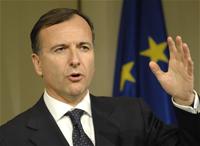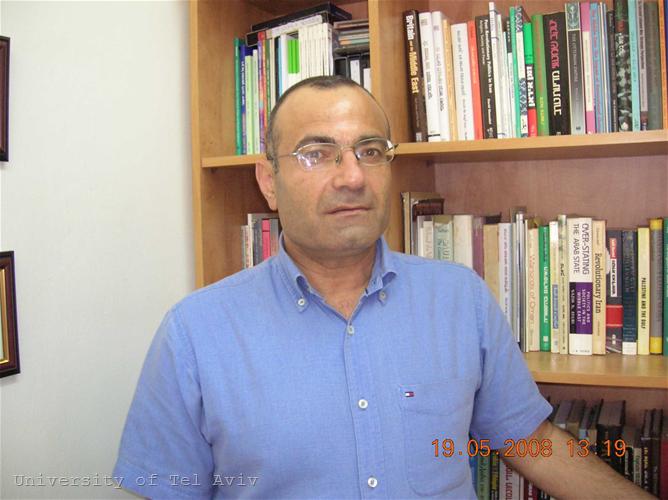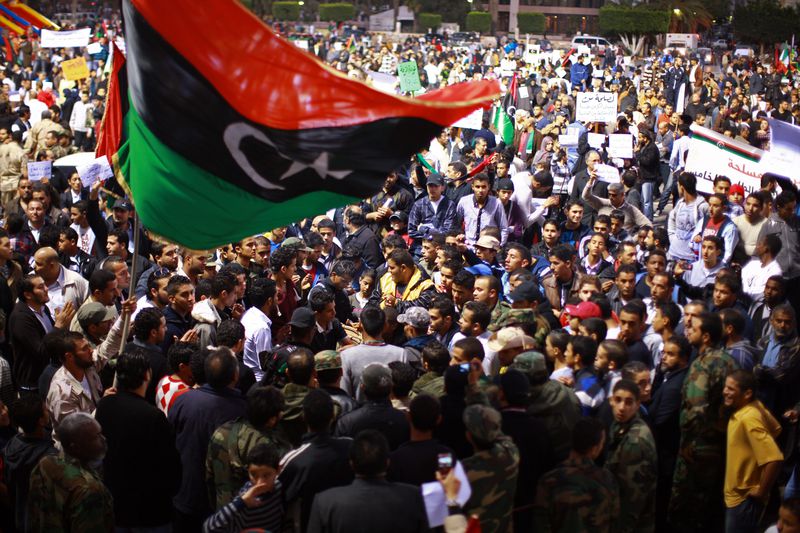Another series of challenges for the EU
Adelina Marini, February 22, 2011
 A country like Bulgaria probably finds it hard to imagine what a big problem could illegal immigrants be, for the simple reason that it has never been an object of aspirations for the people outside the European Union, aiming for better life, freedom and respect of personality. By the way, it is not only Bulgaria that finds that difficult - many EU member states, situated inside the Union and are far from the refugees and illegal immigrants entry points, were also until recently not quite sympathetic to the concerns of countries like Greece, Italy, Spain and Portugal. However now the problem gains new force because it is expected the flows of unwanted and undereducated people to increase several times because of the unrest in North Africa and the Middle East.
A country like Bulgaria probably finds it hard to imagine what a big problem could illegal immigrants be, for the simple reason that it has never been an object of aspirations for the people outside the European Union, aiming for better life, freedom and respect of personality. By the way, it is not only Bulgaria that finds that difficult - many EU member states, situated inside the Union and are far from the refugees and illegal immigrants entry points, were also until recently not quite sympathetic to the concerns of countries like Greece, Italy, Spain and Portugal. However now the problem gains new force because it is expected the flows of unwanted and undereducated people to increase several times because of the unrest in North Africa and the Middle East.
The big test for the European structure
The first signals of negative consequences of the otherwise welcomed processes of democratisation in the Southern Mediterranean and the Middle East are now available in Italy - over 5,000 Tunisian illegal immigrants, in just a week, arrived at the shores of the Lampedusa island. According to the existing laws they have to remain where they are until their destiny is decided. Italy's stem come from another address - Libya, where the unrest continues to grow with every single day, although the chances of success, as was in Tunisia or Egypt, seem significantly less. But, notwithstanding the agreement which Italy achieved with Libyan leader Muammar al-Gaddafi on the restriction of the flow of illegal immigrants for Europe, the protests could prove a factor in increasing their numbers.
All this is happening in a not very pleasant for the EU moment when the fate of the euro area is being decided, when all member states have budgetary problems and wonder how to cut spending, where there is high unemployment and, to put it more generally - there is a huge pressure over public finances.
It is no accident that in precisely this moment Italian Foreign Minister Franco Frattini, a former EU commissioner for internal affairs and justice, came out with a specific proposal. In an article for the Financial Times Mr Frattini proposes the  creation of a Stability and Development Pact for the Mediterranean for the countries of the Union for the Mediterranean, as well as a Marshall Plan for these countries.
creation of a Stability and Development Pact for the Mediterranean for the countries of the Union for the Mediterranean, as well as a Marshall Plan for these countries.
"The Mediterranean poses dramatic new challenges for European security. Events in Libya may add a fresh wave of refugees to the 5,000 Tunisian migrants who have landed on the coast of Sicily this week alone. Human traffickers, criminals and terrorists stand ready to exploit chaos stemming from the collapse of the old order. Europe must act quickly, or this “arc of crisis” will lead to more illegal immigration, terrorism and Islamic radicalism".
According to the Italian top diplomat what the EU can do, without interfering in the democratic processes in Tunisia, Egypt and other countries, is to rely on three pillars: significant (and visible) financial assistance; political partnership; social inclusion. He adds that the Pact could be developed on the basis of stimulating economic growth in these countries which can happen through improving the European Neighbourhood Policy. The resources for this could come from increasing the future budgets of the EU, which as an idea comes quite on time before the peak of the negotiations on the future multiannual financial framework of the EU for the period 2014-2020 (if this period is decided to remain 7 years).
The existing resources which are nearly several billion by the end of the current financial framework, to be better allocated to programmes that could boost growth and create new jobs. For Egypt, Mr Frattini ponders, this could be tourism as it remains a major source of revenue and jobs.
Obviously, knowing that the EU cannot handle any development policies for the region, Franco Frattini proposes the World Bank and the IMF to get involved in the urgent development of an equivalent to the Marshal Plan for the Mediterranean economic stability. This plan, Frattini writes, must mobilise a critical mass of new European and international financial resources, something in the range of billions of euro, for the modernisation of the economies in the region and to improve investments. Removing of trade barriers between Mediterranean countries should also be a priority. And last but not least, the EU should work together with the United States, the Italian Foreign Minister recommends.
As the EU was spending until recently a lot of money to improve the situation of the countries in the South Mediterranean, but obviously without great success, the Italian top diplomat offers all of the above to be made available under a condition - to include the commitments of each country to improve governance, to implement all their international obligations and to protect human rights, including those of women and of religious minorities. "Change in the Mediterranean is a test for Europe. But it is also an opportunity for European and Mediterranean countries to work together in the interests of all", Franco Frattini ends his article.
Internal vs external borders
 The situation gets complicated further by the problems in the European Union itself 20 years after similar uprisings in the Eastern periphery of the Union. This is well outlined by Hugo Brady, a senior researcher with the Centre for European Reform in London, in the blog of the think tank. The problem, he says, is that the initial concept of creating a common zone of freedom and security, without borders, with a common policy towards refugees and immigrants, with the cooperation between police and judicial systems, simply did not work. But the immigration issue in many countries, as well as the deepening differences between governments and European institutions outline the flaws in the joint structure.
The situation gets complicated further by the problems in the European Union itself 20 years after similar uprisings in the Eastern periphery of the Union. This is well outlined by Hugo Brady, a senior researcher with the Centre for European Reform in London, in the blog of the think tank. The problem, he says, is that the initial concept of creating a common zone of freedom and security, without borders, with a common policy towards refugees and immigrants, with the cooperation between police and judicial systems, simply did not work. But the immigration issue in many countries, as well as the deepening differences between governments and European institutions outline the flaws in the joint structure.
It should not be a surprise that Hugo Brady too points the Dutch as major initiators of the debate for a change, from where recently came the call for a renegotiation of the free movement directive. At first sight, the author writes, the Dutch proposal does not seem that outrageous, which is to amend the directive so that it could allow governments to deport EU citizens with criminal files to their home country. The problem, though, as he puts it, is that if opened this directive would spark a plethora of demands from France, Italy and Great Britain to restrict free movement in other ways. It is enough only to recall the case from last year with the deportation from France of Roma from Bulgaria and Romania and the danger of splitting the Union between east and west and even north and south is increasingly growing.
The Bulgarian contribution
And here comes Bulgaria, caught in an awkward situation. Against the backdrop of the problems of Greece on its border with Turkey where currently a temporary Frontex mission is working (the European border agency), as well as the calls of Italy for similar assistance in order to tackle the flow of immigrants from Tunisia, it is not impossible, Mr Brady writes, a European border guard to be established, which might catch a lot of EU countries by surprise. "Meanwhile, Bulgaria and Romania are adamant that they should join the Schengen area this year. For example, the  Romanian port of Constanta risks becoming a Baltimore-on-the-Black Sea if traffickers and smugglers operating in the region can access the Schengen area there under current conditions: organised crime and corruption are commonplace.
Romanian port of Constanta risks becoming a Baltimore-on-the-Black Sea if traffickers and smugglers operating in the region can access the Schengen area there under current conditions: organised crime and corruption are commonplace.
Moreover, Schengen entry is probably the last piece of leverage the EU has left to encourage both countries to cleanse corruption, reform their judiciaries and step up the fight against serious crime, as they solemnly promised to do in 2007. To argue that these issues are irrelevant to the maintenance of a common border is to dwell on niceties: they are all inherently linked to the rule of law", Hugo Brady says in the plain text for those who still don't get it.
The analyst points several other problems, which the EU is having right now with its common policies, or more precisely - with their compromiseness with national sovereignties, but the general feeling from his text is that the day is not very far when the countries with solid democracies, with rule of law (meaning that no one is above the law, no matter of his position), with tight fiscal policy and a wish for work and production of competitive products and services, will separate entirely.
What does Bulgaria think on the issue?
Bulgaria, unfortunately, still does not realise the scale of the disaster, buried under interpersonal, inter-party and inter-who-knows-what-more battles, with inadequate media and a sleeping society. And this is something that is seen in the entire European Union. Because Turkey does not have a problem with its borders, but Greece and Bulgaria definitely do. And now this is going to be a real test for Bulgaria's borders because with any continuation of the uprisings in the broader Middle East it is not to be excluded that the flow of illegal immigrants through Bulgarian borders could increase.
This is why euinside asked the spokesperson of the Ministry of Foreign Affairs whether Bulgaria was aware of Italy's proposal and whether there was a tendency of going toward a common approach regarding illegal immigrants. Ms Vessela Tcherneva replied that Italy introduced its ideas to its partners, expressed  by Franco Frattini, and added that this was just one of many ideas being discussed in the Foreign Affairs Council.
by Franco Frattini, and added that this was just one of many ideas being discussed in the Foreign Affairs Council.
Regarding the common approach Vessela Tcherneva said: "The issue of illegal immigration is just one part of the issues in the Middle East and I would really not want this to turn into a focus of our political talking and of our attitudes towards the region. [...] Regarding specifically to the illegal immigration issue, Italy and other countries discuss this issue very actively. We follow with great attention, obviously also in the context of Bulgaria's candidacy for membership in Schengen. Reacting on this issue is a matter of a European debate which Bulgaria hopes to take part in soon, as a member of Schengen".
However, it is not enough Bulgaria to hope and especially significant for this are European Commission's reports under the Cooperation and Verification Mechanism, as well as the problems with the demand of several EU member states Romania's and Bulgaria's membership to be postponed indefinitely (actually the period is defined -  until both countries realise what is required from them to do and finally do it). It is these reports that governments in a row read just like the Devil reads the Gospel.
until both countries realise what is required from them to do and finally do it). It is these reports that governments in a row read just like the Devil reads the Gospel.
And it is a pity that Bulgaria will take part in the debate about EU's common security only when it becomes a member of Schengen, if and when this would happen. It is indeed a pity that after 20 years of possibilities and opportunities, but ultimately spent in doing nothing, we will again stand in front of Europe's door - with those whom we strove for turning their backs on us, as us being a hopeless case, and facing those who 20 years after us are heading the same way. Well, it would be comforting to know that our failure could be used as a precious lesson for those after us.
 | © University of Tel Aviv
| © University of Tel Aviv | © Syrian Presidency
| © Syrian Presidency | © UN
| © UN